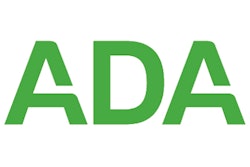
The National Association of Dental Plans (NADP) is cautioning that a new law in Massachusetts designed to reform dental insurance in the state may have unexpected consequences, including increased premiums and decreased dental plan options.
On November 8, voters in Massachusetts overwhelmingly approved a measure to reform dental insurance medical loss ratios (MLRs). Effective in the Bay State in 2024, insurance carriers will be required to spend at least 83% of revenues on members' dental expenses and quality improvements instead of administrative costs.
Organized dentistry, including the ADA, which poured more than $5 million into getting the initiative passed, and the Association of Dental Support Organizations, supported the measure and expect it will have a domino effect in the U.S.
On the other hand, the NADP, which has opposed the initiative since it was introduced in the spring, believes the new law will negatively affect the 85% of Massachusetts residents who have dental insurance, as well as those seeking coverage, according to a press release issued by the organization on November 9.
Furthermore, the NADP commissioned a Milliman Research Report that shows many dental plans could face losses to comply with Massachusetts law, which would force them to significantly change dental coverage for state residents.
Part of the problem is that MLRs are common in medical insurance and do not translate easily to dental insurance plans. Dental plans are a small fraction of the cost of medical insurance and have substantially different plan designs, according to the NADP.
"Applying medical loss ratio to dental plans will disincentivize dental plans from negotiating lower rates with dentists on behalf of Massachusetts citizens, which will lead to new costs for Massachusetts citizens," according to the NADP release.
Beginning on January 1, 2024, the commissioner of the Massachusetts Division of Insurance can approve or disapprove the rates of dental benefits plans and require dental insurers to meet an annual aggregate MLR of at least 83%. If an MLR falls below 83%, the carrier would be obligated to refund excess premiums to covered individuals and groups.
Additionally, the law applies to dental benefit plans whether they are issued directly by a carrier, through the connector, or through an intermediary. However, it does not apply to dental insurance plans issued, delivered, or renewed to a self-insured group or where a carrier is acting as a third-party administrator.




















